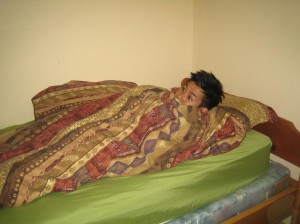Postoperative fever arises hours or days after a surgical procedure. Even though it can be alarming, it is usually expected. Nevertheless, the fever might be an indication of an underlying issue occasionally.
An adult who had undergone surgery who develops fever higher than 103 degrees F must see a doctor.
What are the possible causes?
Various factors can trigger postoperative fever such as:

- Wind – this includes respiratory issues such as atelectasis or pneumonia
- Walking – this refers to venous thromboembolism which is a complication of surgery
- Water – urinary tract infection
- Wound – infection at the surgical site
- Wonder drugs – certain drugs such as antibiotics or medications that include sulfur can trigger fever in some individuals. In addition, a central line site might end up infected and cause a fever
Management of postoperative fever
If the individual had surgery in the last 2 days and the body temperature is 1-2 degrees higher than normal, it is managed with over-the-counter pain medications such as ibuprofen and acetaminophen.
In case the body temperature is elevated than normal by more than 2 degrees, it is recommended to consult a doctor right away since further treatment is necessary such as:
- Antibiotics to manage an infection either close to the surgical site or in a different part of the body
- Anticoagulants to deal with VTE
- Chest physiotherapy such as postural drainage for atelectasis
In case fever arises 5 or more days after surgery, it is likely due to an infection that requires treatment that cases that arise within a day or two.
